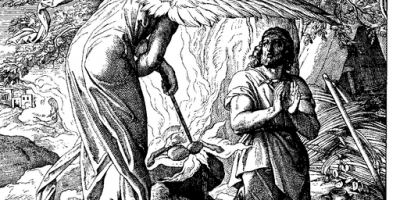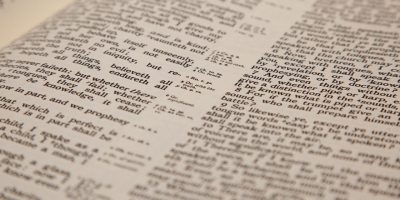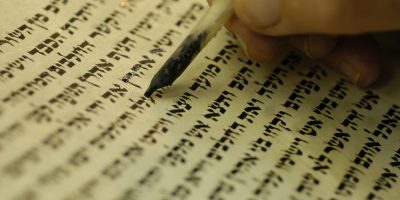The Book of
Jeremiah
The Book of Jeremiah
The following are summaries and outlines for
the book of Jeremiah

Gospel of Jeremiah Summary
The Book of Jeremiah is primarily a message of judgment on Judah for rampant idolatry (Jeremiah 7:30-34; 16:10-13; 22:9; 32:29; 44:2-3). After the death of King Josiah, the last righteous king, the nation of Judah had almost completely abandoned God and His commandments. Jeremiah records King Nebuchadnezzar conquering Judah and making it subject to him (Jeremiah 24:1) [Source: https://www.gotquestions.org/Book-of-Jeremiah.html]

Title
The book was named after the prophet Jeremiah. Jeremiah hoped and prayed for mercy from God for Judah, but also trusted that God was good, just, and righteous.
The book was written for the people of Judah and Jerusalem during the reigns of their last five kings. The book was written between 626 and 586 BC

Author and Date of Writing
The author is the priest and prophet Jeremiah. Jeremiah was the son of Hilkiah, a priest in the line of Abiathar, who lived at Anathoth. Jeremiah prophesied during the reigns of Judah’s last kings. His prophetic ministry stretched from the days of Josiah (640–609 b.c.) until Jerusalem’s fall in the reign of Zedekiah (598–586 b.c.). Following his divine call in 627 b.c., Jeremiah served the Lord and the people of Judah throughout the rapidly changing scenes of the final decades of the southern kingdom and even beyond. [Source: King James Bible Study Notes]
Jeremiah Outline
I. The Call of the Prophet Jeremiah (ch. 1)
II. Warnings and Exhortations to Judah (chs. 2–29)
- Earliest Discourses (chs. 2–6)
- The nation’s sin and ingratitude (Jeremiah 2:1-37, Jeremiah 3:3—3:5)
- A message of hope and judgment (Jeremiah 3:6-25; Jeremiah 4:1-34; Jeremiah 5:1-31; Jeremiah 6:1-6:30)
- Temple Message (chs. 7–10)
- Hypocritical temple worship (Jeremiah 7:1-34; Jeremiah 8:1-3)
- Rejection of the law and consequent judgment (Jeremiah 8:4–17)
- Lament over judgment (Jeremiah 8:18-22; Jeremiah 9:1-26)
- God and idols (Jeremiah 10:1-25)
- Covenant and Conspiracy (chs. 11–13)
- The Lord’s charge (Jeremiah 11:1-23)
- Jeremiah’s complaint and the Lord’s response (Jeremiah 12:1-17)
- The illustrations and their application (Jeremiah 13:1-27)
- Message Concerning the Drought (chs 14–15)
- The drought (Jeremiah 14:1–6)
- Jeremiah’s pleas and God’s replies (Jeremiah 14:7–12)
- God’s final answer: sword, famine and exile (Jeremiah 15:1–9)
- Jeremiah’s “confession” and God’s response (Jeremiah 15:10–21)
- Disaster and Comfort (16:1—17:18)
- Jeremiah’s celibacy and the reason for it (Jeremiah 16:1–13)
- Judah’s destiny (Jeremiah 16:14–21)
- Judah’s sin and its consequences (Jeremiah 17:1–18)
- Command to Keep the Sabbath Day Holy (Jeremiah 17:19–27)
- Lessons From the Potter (chs. 18–20)
- A lesson in divine sovereignty (Jeremiah 18:1–17)
- Jeremiah’s complaint (Jeremiah 18:18–23)
- The broken clay jar (Jeremiah 19:1-15)
Jeremiah’s persecution and prophecy (Jeremiah 20:1–6) - Jeremiah’s complaint (20:7–18)
- Condemnation of Kings, Prophets and People (chs. 21–24)
- Charges against kings (Jeremiah 21:1-14; Jeremiah 22:1-30; Jeremiah 23: 1-4)
- The righteous Branch (Jeremiah 23:5–8)
- Charges against false prophets (Jeremiah 23:9–40)
- Two baskets of figs (Jeremiah 24; 1-10)
- The Prediction of the Babylonian Exile (chs. 25–29)
- The judgment of Judah and Babylonia (Jeremiah 25:1–14)
- The judgment of the nations (Jeremiah 25:15–38)
- The judgment of the temple and the threat to Jeremiah (Jeremiah 26:1-24)
- The unfounded optimism of the false prophets (Jeremiah 27:1-22; Jeremiah 28:1-17; Jeremiah 29:1-32)
III. The Book of Consolation: Tribulation and Restoration (chs. 30–33)
- “A Time of Trouble for Jacob” (Jeremiah 30:1–11)
- Israel’s Restoration (Jeremiah 30:12-24; Jeremiah 31:1-30)
- The New Covenant (Jeremiah 31:31–40)
- The Lord’s Faithfulness and Power (Jeremiah 32: 1-44; Jeremiah 33:1-26)
IV. Israel Under Zedekiah Contrasted With the Rekabites (chs. 34–36)
A. The Message to Zedekiah (Jeremiah 34:1–7)
B. Freedom for Slaves (Jeremiah 34:8–22)
C. Faithful Rekabites and Unfaithful Jews (Jeremiah 35:1-19)
D. The Burning of Jeremiah’s Scroll (Jeremiah 36:1-32)
V. The Suffering and Persecution of the Prophet Jeremiah (chs. 37–38)
A. Jeremiah in Prison (Jeremiah 37:1-21)
B. Jeremiah Thrown Into a Cistern (Jeremiah 38:1-28)
VI. The Fall of Jerusalem and Its Aftermath (chs. 39–45)
A. The Fall Itself (Jeremiah 39: 1-18)
B. The Accession and Assassination of Gedaliah (Jeremiah 40:1-16; Jeremiah 41:1-15)
C. The Migration to Egypt (Jeremiah 41:16-18; Jeremiah 42: 1-22; Jeremiah 43:1-13)
D. The Prophecy Against the Jewish Exiles in Egypt (Jeremiah 44:1-30)
E. Historical Appendix (Jeremiah 45:1-5)
VII. Prophecies Against the Nations (chs. 46–51)
A. Against Egypt (Jeremiah 46:1-28)
B. Against Philistia (Jeremiah 47:1-7)
C. Against Moab (Jeremiah 48:1-47)
D. Against Ammon (Jeremiah 49:1–6)
E. Against Edom (Jeremiah 49:7–22)
F. Against Damascus (Aram) (Jeremiah 49:23–27)
G. Against Kedar and Hazor (Syro-Arabian Desert Tribes) (Jeremiah 49:28–33)
H. Against Elam (Jeremiah 49:34–39)
I. Against Babylonia (Jeremiah 50:1-46; Jeremiah 51:1-64)
VIII. Historical Appendix (ch. 52)
A. The Fall of Jerusalem (Jeremiah 52:1–30)
B. The Release of Jehoiachin (Jeremiah 52:31–34)